With the 2014 edition of football's biggest game — Â and advertising's biggest stage — Â approaching, AppleInsider looks back at what Apple and the Super Bowl have meant to each other.
Apple's Super history
Apple opened its Super Bowl advertising career with a bang: the company's iconic "1984" commercial is universally hailed as one of the greatest television ads of all time and its airing is considered by many to be a watershed moment in advertising history. The Ridley Scott-directed ad ushered in a new era of high-dollar, high-concept spots that have so transformed the American landscape that many Super Bowl viewers tune in for the commercials rather than the game itself.
That ad's 1985 followup was markedly less successful. Aiming for the same struggle-for-freedom message of its predecessor, the new spot — Â dubbed "Lemmings" — Â was startlingly brutal and fell well short of its mark. Featuring a line of people hurling themselves off of a cliff, many potential customers felt insulted by the commercial and it has since been panned by critics as one of the worst advertisements in Apple's history.
Following the infamous firing of company co-founder Steve Jobs, Apple drifted in and out of the Super Bowl throughout the latter half of the 1980s and the 1990s with forgettable results. When Jobs returned in 1997, he reengaged the services of former agency Chiat Day and in the process reunited with legendary adman Lee Clow, one of the creative minds behind the original 1984 spot.
From that reunion came a new commercial starring HAL 9000, the sentient computer from Stanley Kubrick's 2001: A Space Odyssey. Aired during Super Bowl XXXIII in 1999, the well-reviewed spot — Â in which HAL pokes fun at the Windows Y2K bug — Â would be Apple's final appearance in the big game for more than a decade.
The Super Bowl without Apple
With Apple out of the picture, dot-coms became Silicon Valley's flag bearers. Companies such as GoDaddy, Hulu, and Monster took the place of old warhorses like Apple and Xerox.
Search giant Google aired a wordless spot in 2010 that showed a Parisian romance playing out in search queries. Then-independent Motorola took to the airwaves the same year with an ad for their Motorola Blur mobile software starring actress Megan Fox.
In 2013, Samsung joined the fray with "The Next Big Thing," a 60-second spot starring actors Seth Rogen, Paul Rudd, and Bob Odenkirk alongside professional basketball player LeBron James.
Only one technology company — Â GoDaddy — Â has signed up for 2014, according to early ad buy numbers from AdAge. There are rumors, however, that one tech titan may be plotting a comeback.
Will Apple return?
Apple marks two pearl anniversaries this year: the Mac and its iconic coming out spot both turn 30. The company's celebratory ad blitz has yet to hit the airwaves, but old collaborator Lee Clow has hinted that may change come Sunday.
Gonna be a goodSuper Bowl.
Mac's gonna be 30 :)
— Lee Clow (@_clow) January 20, 2014"Gonna be a good Super Bowl. Mac's gonna be 30," Clow wrote on Twitter.
If Apple does return to the Super Bowl stage, it will be in a more expensive environment — Â the $4 million Fox is reportedly asking for a 30-second slot is nearly twice what Apple is thought to have paid to produce and air the 1984 commercial when adjusting for inflation. Money likely will not dissuade them, though, as $4 million is effectively a rounding error in Apple's $1 billion yearly advertising budget.
Thanks to the company's famed secrecy, it's unlikely that any more details of Apple's plans will leak in the next 48 hours, but one thing is clear: Apple still changes the game, even when they don't show up.
 Shane Cole
Shane Cole












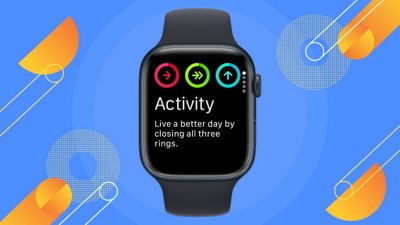
 Andrew Orr
Andrew Orr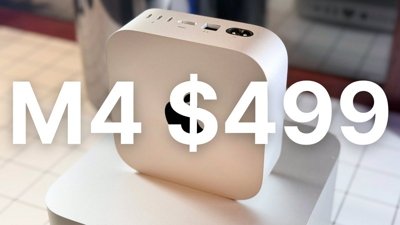
 Christine McKee
Christine McKee
 Sponsored Content
Sponsored Content
 Wesley Hilliard
Wesley Hilliard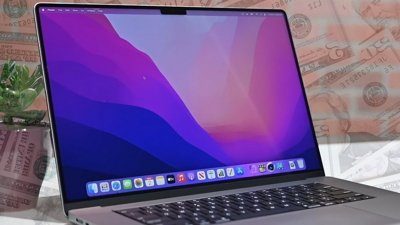
 AppleInsider Staff
AppleInsider Staff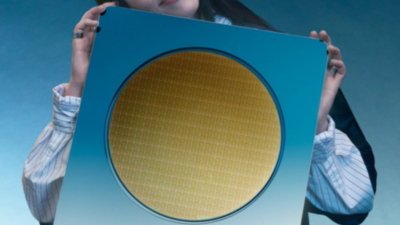

 Amber Neely
Amber Neely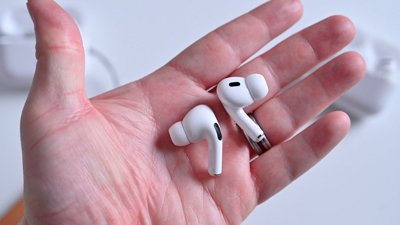









28 Comments
Wow! I just checked and nearly everything costs at least double what it did in 1984, except computers.
When I read the sentence below I immediately thought of Samsungs recent commercials panning their potential new customers (iPhone users waiting in line). "That ad's 1985 followup was markedly less successful. Aiming for the same struggle-for-freedom message of its predecessor, the new spot --?dubbed "Lemmings" --?was startlingly brutal and fell well short of its mark. Featuring a line of people hurling themselves off of a cliff, many potential customers felt insulted by the commercial and it has since been panned by critics as one of the worst advertisements in Apple's history. "
Screen goes black, cello and piano music like their professional product commercials. Cycling between partially lit edges of a square product.
“This will be the last Super Bowl you watch.”
“Because the next one… you’ll experience.”
The new Apple TV.
Coming Soon.
?
Screen goes black, cello and piano music like their professional product commercials. Cycling between partially lit edges of a square product.
“This will be the last Super Bowl you watch.”
“Because the next one… you’ll experience.”
The new Apple TV.
Coming soon.
?
That would be epic. I practically got goosebumps just envisioning that.
That would be epic. I practically got goosebumps just envisioning that.
Yep. Same here.